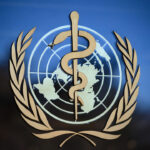
WHO, UNICEF, others warn against prevalence of measles, diphtheria, polio, yellow fever
Seventy five per cent (three quarters) of children who missed vaccinations in 2021 live in Nigeria and 19 other countries.
This was made known, yesterday, by World Health Organisation (WHO), United Nations Children’s Fund (UNICEF), Gavi – the Vaccine Alliance, and the Bill & Melinda Gates Foundation, alongside Immunisation Agenda 2030 and many other global and national health partners.
The disclosure came as nations mark World Immunisation Week (WIW), April 24 to 30.
The 19 other countries are: Afghanistan, Angola, Brazil, Cameroun, Chad, Democratic People’s Republic of Korea, Democratic Republic of Congo, Ethiopia, India, Indonesia, Pakistan, Philippines, Somalia, Madagascar, Mexico, Mozambique, Myanmar, Tanzania, Viet Nam.
The global partners joined forces to call for ‘The Big Catch-up’, a targeted global effort to boost vaccination among children, following declines driven by the COVID-19 pandemic.
WHO, UNICEF and partners, in a joint statement, said this effort aims to reverse declines in childhood vaccination recorded in over 100 countries since the pandemic, due to overburdened health services, closed clinics, and disrupted imports and exports of vials, syringes and other medical supplies.
They said communities and families experienced lockdowns, restricting travel and access to services, and financial and human resources were limited along with access to health commodities, due to the emergency response.
“Ongoing challenges like conflicts, climate crises and vaccine hesitancy also contributed to the decline in coverage rates,” they noted.
They further explained: “With over 25 million children missing, at least, one vaccination in 2021 alone, outbreaks of preventable diseases, including measles, diphtheria, polio and yellow fever are already becoming more prevalent and severe. The Big Catch-up aims to protect populations from vaccine-preventable outbreaks, save children’s lives and strengthen national health systems.
“While calling on people and governments in every country to play their part in helping to catch up by reaching the children who missed out, The Big Catch-up will have a particular focus on the 20 countries where three quarters of the children who missed vaccinations in 2021 live.”
To ensure progress on childhood immunisation, partners are working with countries to strengthen healthcare workforces, improve health service delivery, build trust and demand for vaccines within communities, and address gaps and obstacles to restoring immunisation.
In addition to catching up on childhood immunisation, intensified efforts are needed to introduce the human papillomavirus (HPV) vaccine to adolescents to prevent cervical cancer, particularly in low- and middle-income countries where the burden is highest.
WHO Director-General, Dr. Tedros Adhanom Ghebreyesus, said: “Millions of children and adolescents, particularly in lower-income countries, have missed out on life-saving vaccinations, while outbreaks of these deadly diseases have risen. WHO is supporting dozens of countries to restore immunisation and other essential health services. Catching up is a top priority. No child should die of a vaccine-preventable disease.”
UNICEF Executive Director, Catherine Russell, said: “Routine vaccines are typically a child’s first entry into their health system and so children who miss out on their early vaccines are at added risk of being cut out of healthcare in the long run.
“The longer we wait to reach and vaccinate these children, the more vulnerable they become and the greater the risk of more deadly disease outbreaks. Countries, global partners and local communities must come together to strengthen services, build trust and save lives.”
CEO of Gavi, the Vaccine Alliance, Dr. Seth Berkley, said: “We cannot allow a legacy of the pandemic to be the undoing of many years’ work protecting more and more children from deadly, preventable diseases. Global health partners, working with governments and communities, must do everything we can to protect the life of every child.”
President of Global Development at the Bill & Melinda Gates Foundation, Dr. Chris Elias, said: “Vaccines are a public health triumph. The incredible progress that has been made toward ending polio and reducing the incidence of infectious diseases is the direct result of thousands of dedicated global partners and local health workers who have worked to immunise millions of children. We must double down to reach all children with the vaccines they need to live healthier lives and ensure that future generations live free of preventable diseases like polio.”












